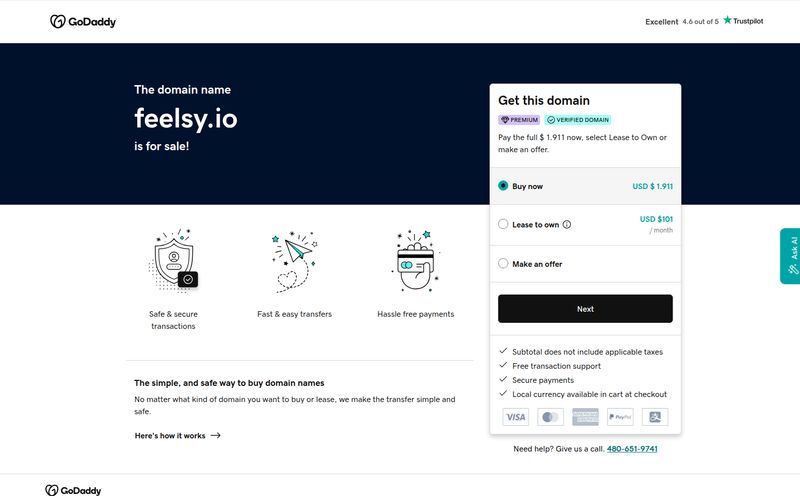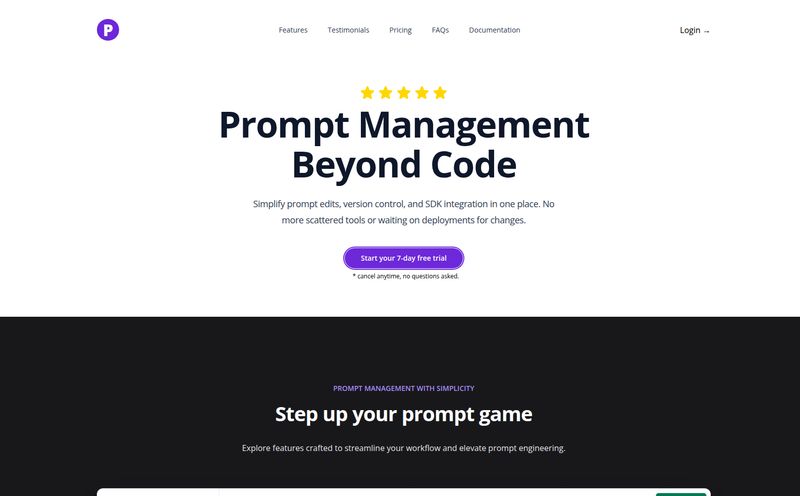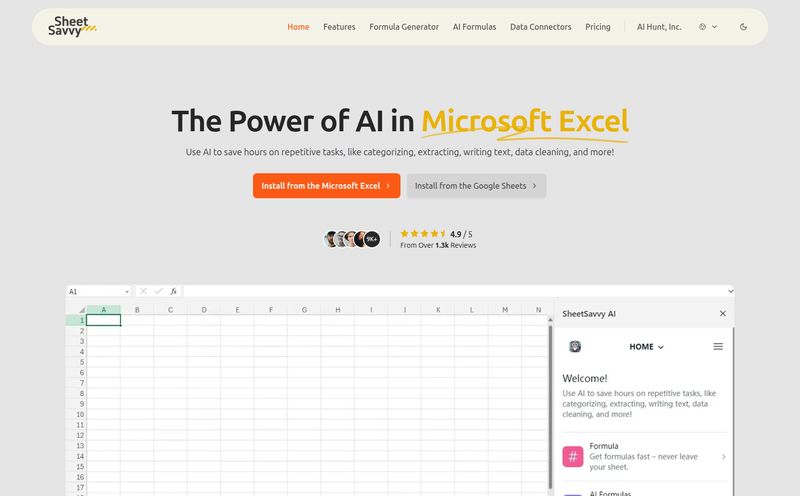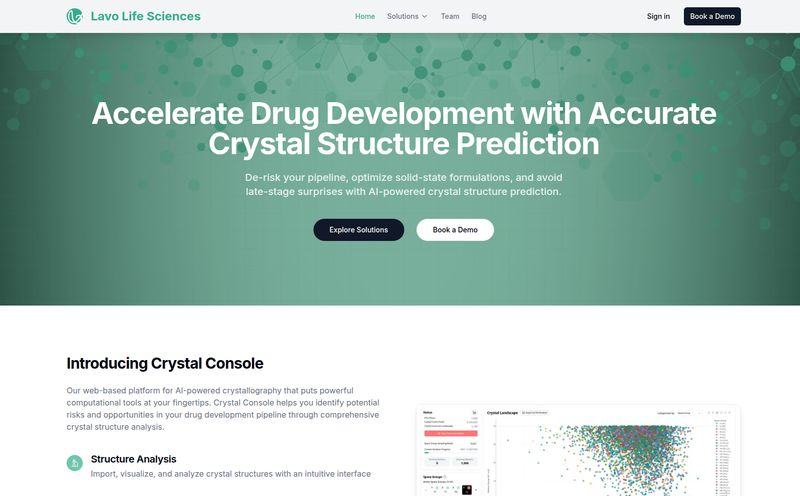I’ve been in this SEO and digital marketing game for a long time. Long enough to remember when just having data was the big win. We hoarded it, analyzed it, and built our strategies on it. Then came the AI boom, and suddenly everyone with a bit of coding skill was building incredible, specialized AI models in their spare time. But a funny thing happened. We all got really good at building these amazing tools, but we're still kind of clumsy when it comes to actually… selling them.
Sure, you can slap a Stripe subscription on a SaaS wrapper, and that works. For a while. But what if your AI is more like a service? What if you want to charge per query, or per minute of computation? What if another AI agent wants to use your AI agent? The traditional payment rails start to feel like using a hammer to perform surgery. It’s messy.
That's the rabbit hole I fell down last week, which led me to a platform called Nevermined. And honestly, it’s one of the most interesting approaches I’ve seen to this problem in a while. It’s not just another payment gateway; it’s a whole new way of thinking about how we grant access to and monetize digital assets.
So, What on Earth is Nevermined?
Okay, let’s cut through the jargon. At its heart, Nevermined helps you turn your AI or your dataset into a product you can sell with very specific rules. Imagine you have a super-smart AI that analyzes market trends. Instead of just selling a monthly subscription, Nevermined lets you create what they call a “smart subscription.”
Think of it like a futuristic vending machine. You put your AI model or your exclusive dataset inside. Then you set the rules on a smart contract: “Anyone can use this for $0.01 per query,” or “This company can have unlimited access for 30 days for $500.” Users (or even other AIs) can then pay and get access automatically, based on the rules you set. No manual invoicing, no clunky API key management. The access is “tokengated”—meaning a crypto token acts as the proof of purchase and the key to unlock the asset.
This whole process is about converting your digital stuff into traceable, secure, and monetizable assets. It’s a pretty big shift from the old way of doing things.
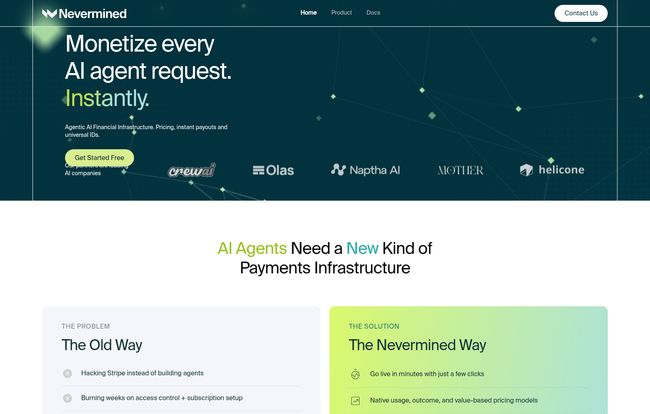
Visit Nevermined
The Pain of the Old Way vs The Nevermined Promise
Their website lays out a pretty clear “before and after” scenario, and it hit home for me. Anyone who’s tried to build a usage-based billing system from scratch knows the pain.
The Old Way is a headache:
- You’re stuck manually building a billing system. It's complicated and takes forever.
- Pricing is rigid. You set a price and hope it works. Adjusting it is a major coding project.
- Your AI can’t really interact with other payment systems on its own. It's a puppet, and you're the one pulling the payment strings.
The Nevermined Way, they claim, is different:
- You can go live in minutes with just a few clicks.
- Pricing models can be dynamic. You can set up metered billing that automatically tracks usage and handles payouts.
- It supports an “agent-to-agent” economy. This is the really futuristic part—your AI can autonomously pay to use another AI, creating a true machine economy.
I’m naturally skeptical of “go live in minutes” promises, but the concept is undeniably powerful. It’s about building the financial infastructure for a world where AIs are economic actors.
The Core Features That Stand Out
A few features really grabbed my attention as being more than just marketing fluff. They seem to solve very real, very nerdy problems.
Access Control That's Actually Smart
Using smart contracts for access control is a game-changer. It’s not just a password that can be leaked or shared. It’s a programmable, verifiable key that lives on a blockchain. This means access is tied directly to payment, and the rules are transparent and can’t be easily cheated. You get a level of trust and automation that’s tough to replicate with traditional systems.
Monetization Built for the Agent Economy
We're on the cusp of what some people are calling “agentic commerce,” where autonomous AI agents conduct business on our behalf. As a16z points out, for this to work, agents need native ways to handle money. This is what Nevermined is betting on. They’re building the payment rails not for humans clicking “buy now,” but for software agents that need to transact instantly and autonomously. It’s a forward-thinking move.
That 'Data In-Situ Computation' Thing
This one is my personal favorite. It sounds technical, but the idea is simple and brilliant. Traditionally, if you wanted to run an analysis on a sensitive dataset, you’d have to download it, which creates a huge security risk. What if you could send your algorithm to the data instead? That's in-situ computation. The data never leaves its secure environment. Your code goes in, does its work, and comes out with only the results. For anyone dealing with medical records, financial data, or anything covered by GDPR, this is a massive deal. It's like sending your chef to cook in a secure, private kitchen instead of having all the secret ingredients shipped to you.
Let's Be Real, Who Is This For?
This is not a tool for setting up your first Shopify store. Let’s make that crystal clear. Nevermined is built for a specific crowd: developers, data scientists, and businesses operating at the intersection of AI and Web3.
If you’re building a specialized AI service, have a unique dataset you want to license, or are experimenting with autonomous agents, then Nevermined should be on your radar. If you're a blogger who just wants to sell an ebook, this is probably overkill. You need to be comfortable with concepts like smart contracts and tokenization to really get the most out of it.
The Big Web3 Hurdle
And that brings us to the elephant in the room. The platform's biggest strength is also its biggest barrier to entry: its reliance on Web3 technology. The pros are obvious—decentralization, transparency, and novel capabilities like agent-to-agent payments. But the cons are just as real.
Working with smart contracts isn’t trivial. There's a learning curve, and if you're not already familiar with the blockchain space, it can feel a little intimidating. This isn’t a flaw in Nevermined, per se, but a characteristic of the technology it’s built on. It’s a trade-off. You accept a bit more complexity in exchange for a lot more power and automation. It's a tool for builders who are willing to get their hands a little dirty to be on the cutting edge.
What's the Damage? A Look at Nevermined Pricing
Here’s where things get a bit hazy. You won’t find a neat little pricing table with Bronze, Silver, and Gold tiers on their site. Instead, they have a “Pricing Calculator.”
Based on the calculator and the nature of the tool, it seems they're running on a usage-based or revenue-share model. This makes perfect sense. The cost is likely tied to the number of transactions, the volume of data, or a percentage of the revenue you generate. While I always prefer transparent pricing upfront, for a B2B/developer tool like this, custom and usage-based pricing is pretty standard. It’s designed to scale with your success, which is a model I can get behind.
Frequently Asked Questions About Nevermined
Why do AI payments need a new infrastructure?
Traditional payment systems like Stripe are designed for human interactions—clicking a button, entering card details. AI agents need to make thousands of tiny, instant transactions without human oversight. Web3 infrastructure allows for these kinds of micro-transactions to happen autonomously and securely between agents.
What’s the difference between micropayments and metered pricing?
They’re related! Metered pricing is the model (e.g., charging per unit of use), and micropayments are the tiny transactions that facilitate it. Nevermined provides the rails for metered pricing by enabling these small, frequent micropayments.
What is agentic commerce?
Agentic commerce is the idea of an economy run by autonomous AI agents buying and selling services from one another. For example, your travel agent AI might pay a weather analysis AI to get the most accurate forecast before booking your flight.
Is Nevermined difficult for non-crypto developers?
There will be a learning curve. While they aim to simplify the process, a basic understanding of Web3 concepts like wallets and smart contracts is definitely helpful. It's not a no-code tool for beginners, but it's designed to make these complex technologies more accessible to developers.
Can I use Nevermined for something other than AI?
Absolutely. The core technology is about token-gating any digital asset. You could use it to sell access to exclusive video content, research papers, software licenses, or pretty much any web service that has an API.
My Final Take: Is Nevermined the Future?
Look, I see a lot of tools that promise to be “the future of X.” Most of them aren't. But Nevermined has me genuinely intrigued. It’s not just bolting crypto payments onto an old system; it's rethinking access and monetization from the ground up for a world where software talks to software.
It is not a tool for everyone, not today at least. It's for the pioneers, the builders who are already bumping up against the limits of what our current financial and technical infrastructure can do. As the quote from Olas on their site suggests, it's a platform for those who are building the next generation of decentralized applications.
If you're one of those people, I think Nevermined is worth a serious look. It might just be the missing piece you've been looking for to finally unlock the true value of your data and AI creations. For the rest of us, it’s a fascinating glimpse into what the future of the digital economy might look like.
